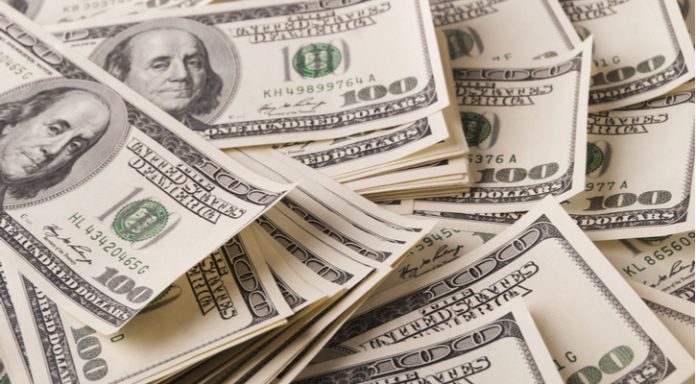The pound was once again trading around year to date lows versus the dollar on Wednesday. An easing of trade war fears boosted the dollar, whilst Brexit concerns weighed on demand for the pound ahead of the EU Summit, which begins today. The pound US dollar exchange rate tumbled to US$1.3107, just 5 points higher than last week’s US$1.3202, the lowest level touched this year.
| What do these figures mean? |
|---|
| When measuring the value of a pair of currencies, one set equals 1 unit and the other shows the current equivalent. As the market moves, the amount will vary from minute to minute. For example, it could be written: 1 GBP = 1.28934 USD Here, £1 is equivalent to approximately $1.29. This specifically measures the pound’s worth against the dollar. If the US dollar amount increases in this pairing, it’s positive for the pound. Or, if you were looking at it the other way around: 1 USD = 0.77786 GBP In this example, $1 is equivalent to approximately £0.78. This measures the US dollar’s worth versus the British pound. If the sterling number gets larger, it’s good news for the dollar. |
The pound steadily lost ground across the previous session, despite encouraging data from the Confederation of British Industry (CBI). According to the CBI, retail sales in the UK soared to their highest level in 9 months. Good weather and soaring temperatures lured consumers to the high street boosting sales across the board. However, the CBI did also note that although these figures were strong, conditions in the retail sector remain challenging and sales are expected to ease again going forward. Yet despite the positives in the report the pound grinded lower.
Today is the start of the EU Summit. This had been earmarked as a key date in Brexit negotiations; however, now it will not top the agenda at the meeting of EU leaders, due to the UK failing to produce details on its demands for the post Brexit relationship. This paper will now be produced after the Summit. Instead the UK is likely to receive a stern warning from the EU over the lack of progress on Brexit issues. With the October deadline fast approaching an no progress to report, a no deal Brexit is looking increasingly probable. This is weighing on the pound.
| Why is a “soft” Brexit better for sterling than a “hard” Brexit? |
|---|
| A soft Brexit implies anything less than UK’s complete withdrawal from the EU. For example, it could mean the UK retains some form of membership to the European Union single market in exchange for some free movement of people, i.e. immigration. This is considered more positive than a “hard” Brexit, which is a full severance from the EU. The reason “soft” is considered more pound-friendly is because the economic impact would be lower. If there is less negative impact on the economy, foreign investors will continue to invest in the UK. As investment requires local currency, this increased demand for the pound then boosts its value. |
Trump Softens His Stance On Chinese Investments
The dollar soared against all of its peers in the previous session. A softening of stance by President Trump helped boost the dollar. A crackdown on Chinese tech investments by the Trump administration was less restrictive than what market participants had been predicting. This has led to an easing of trade war fears.
After trade war headlines have been driving the dollar’s direction for several sessions now. Today investors will turn their attention to the US GDP update. Economic growth is forecast to hit 2.2% year on year. A weaker reading that what analysts are expecting could pull the dollar lower.
| Why does poor economic data drag on a country’s currency? |
|---|
| Slowing economic indicators point to a slowing economy. Weak economies have weaker currencies because institutions look to reduce investments in countries where growth prospects are low and then transfer money to countries with higher growth prospects. These institutions sell out of their investment and the local currency, thus increasing supply of the currency and pushing down the money’s worth. So, when a country or region has poor economic news, the value of the currency tends to fall. |
|
This article was initially published on TransferWise.com from the same author. The content at Currency Live is the sole opinion of the authors and in no way reflects the views of TransferWise Inc. |





